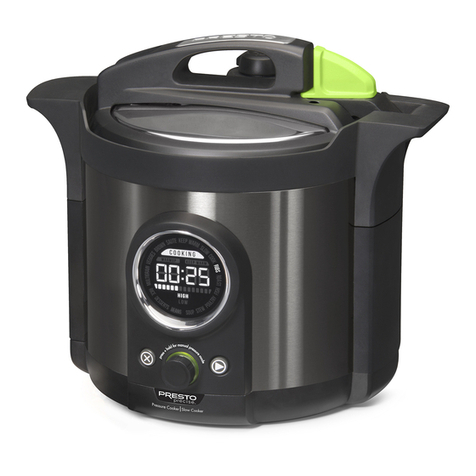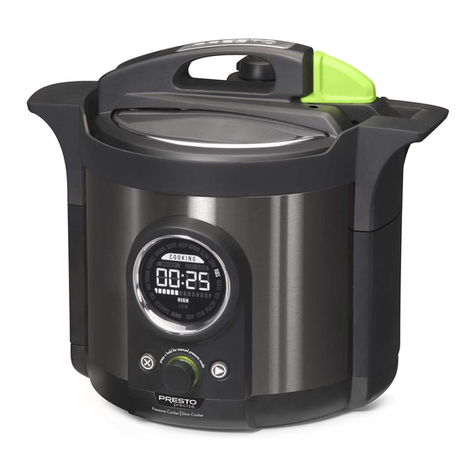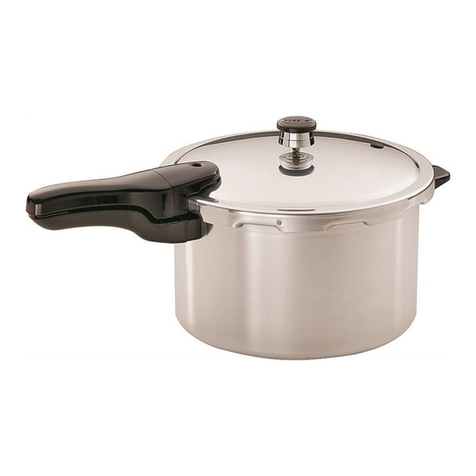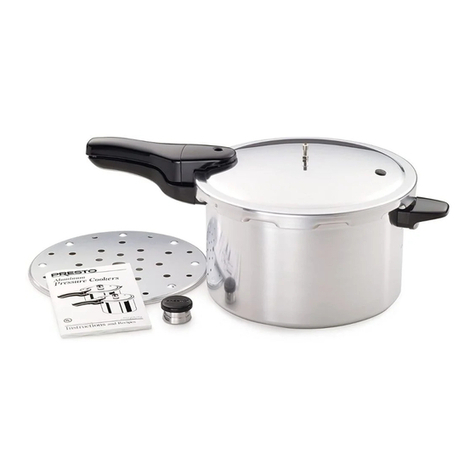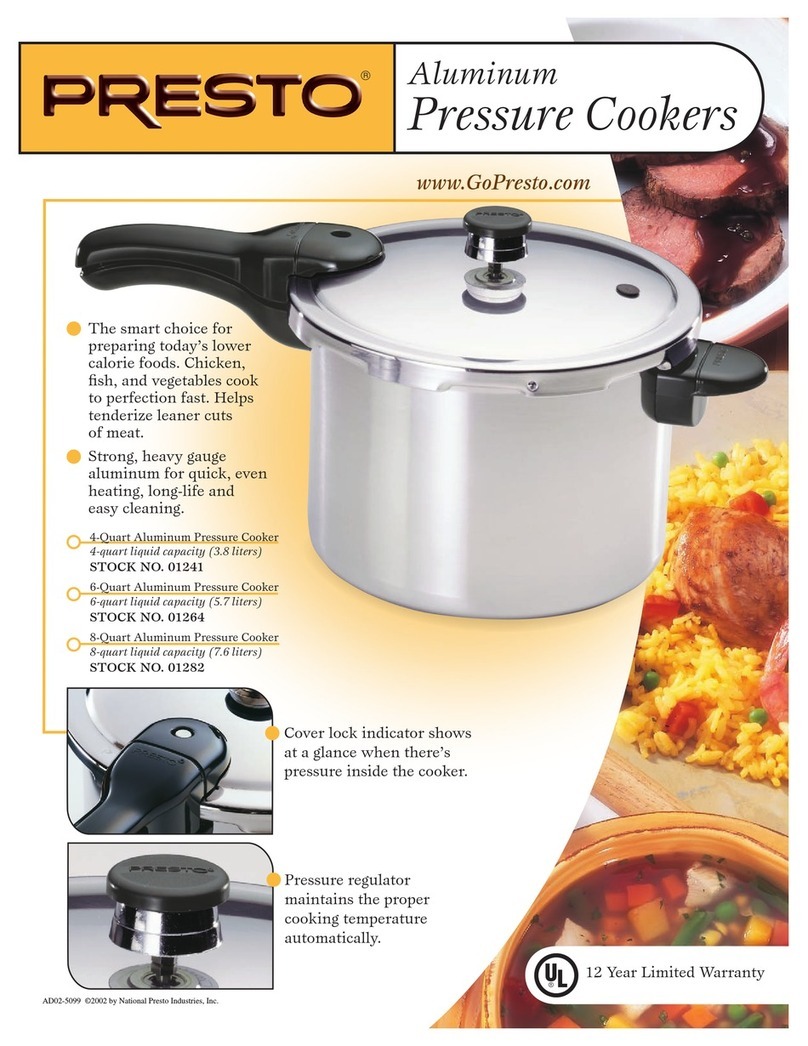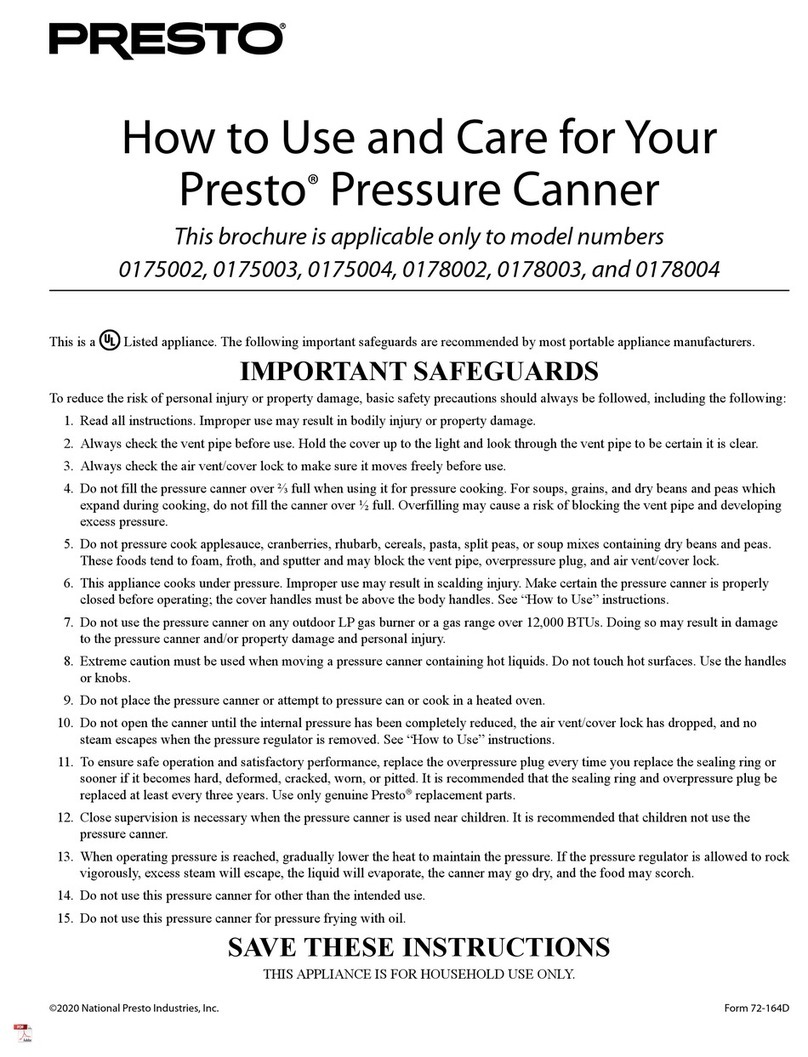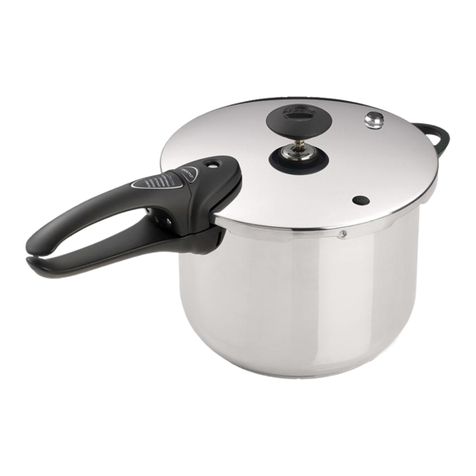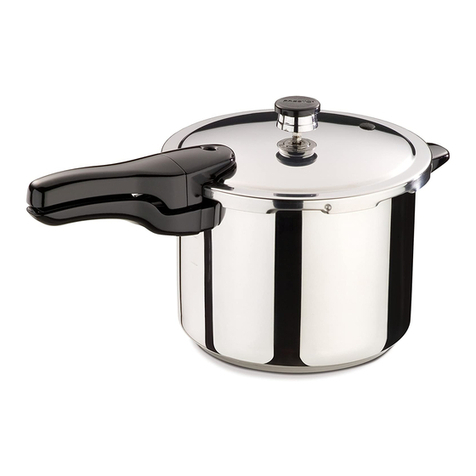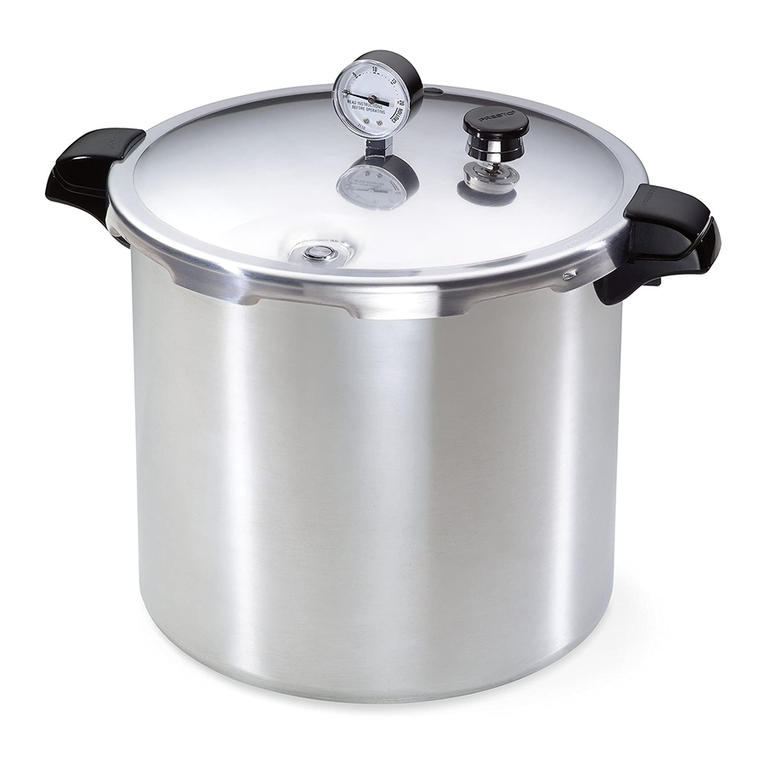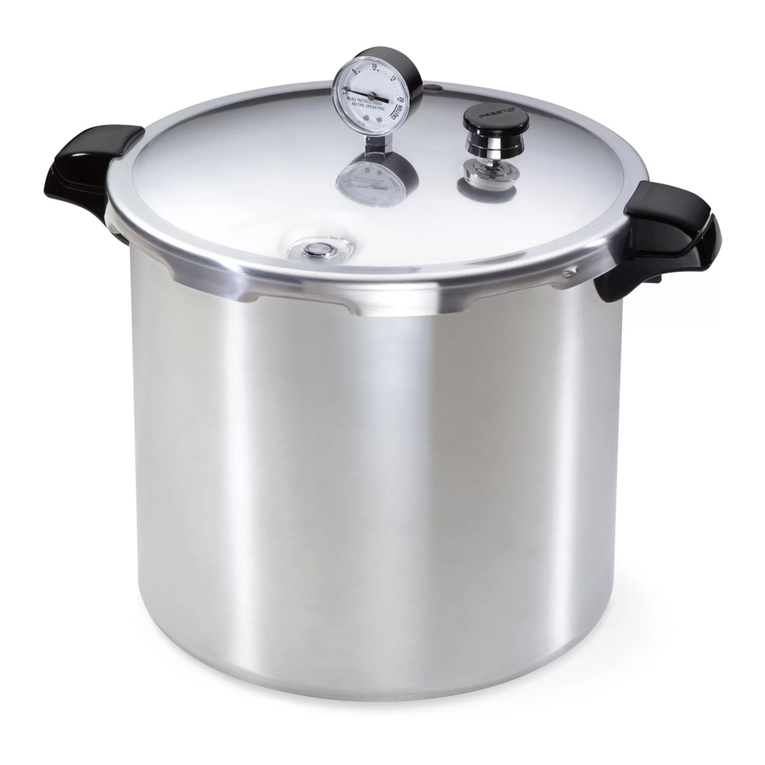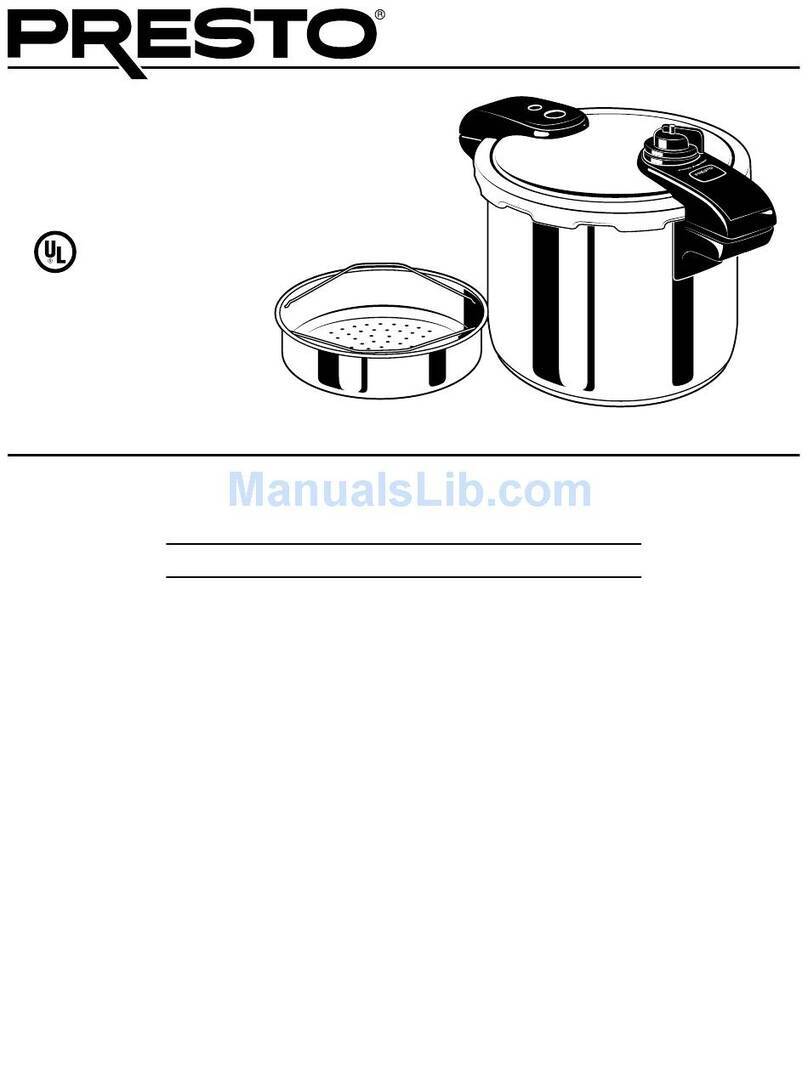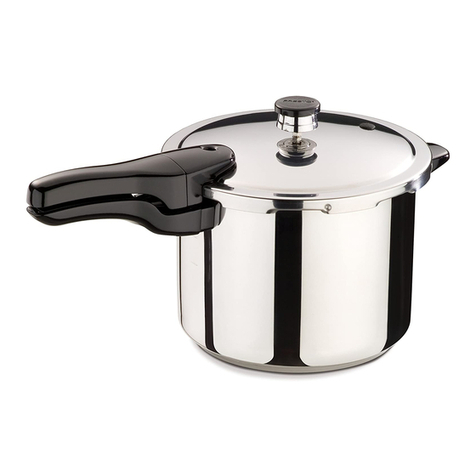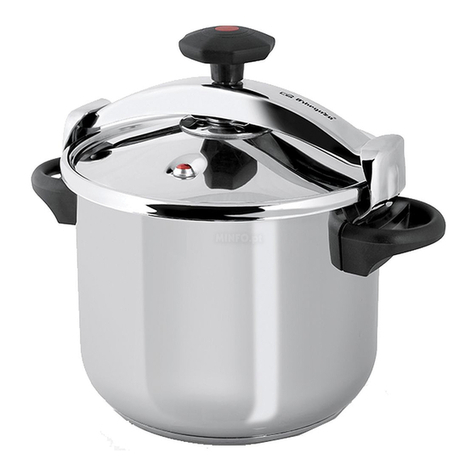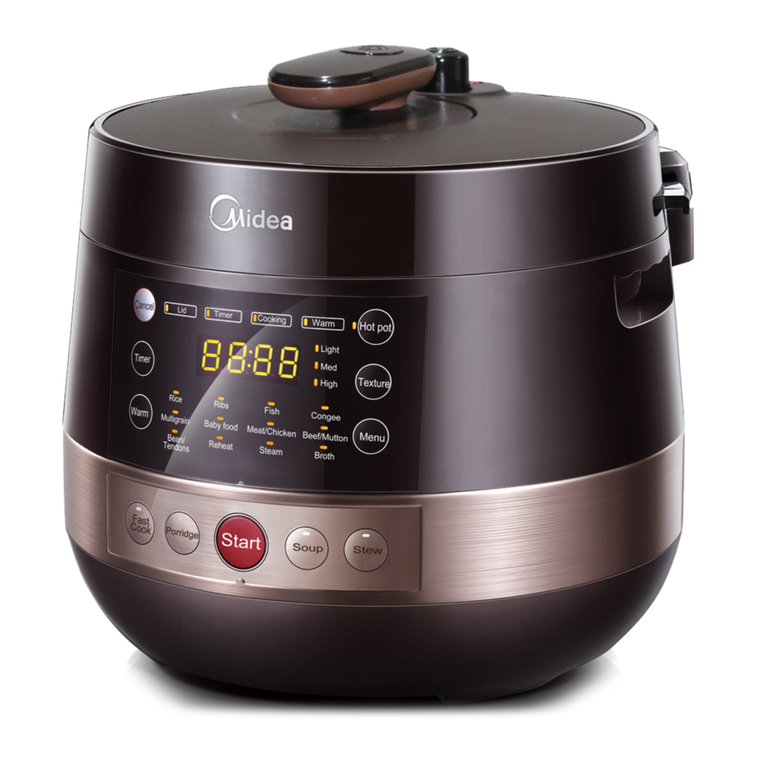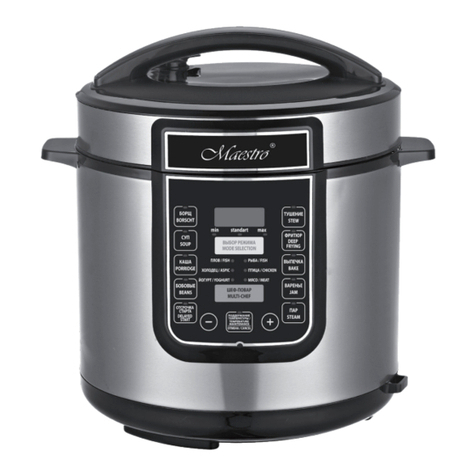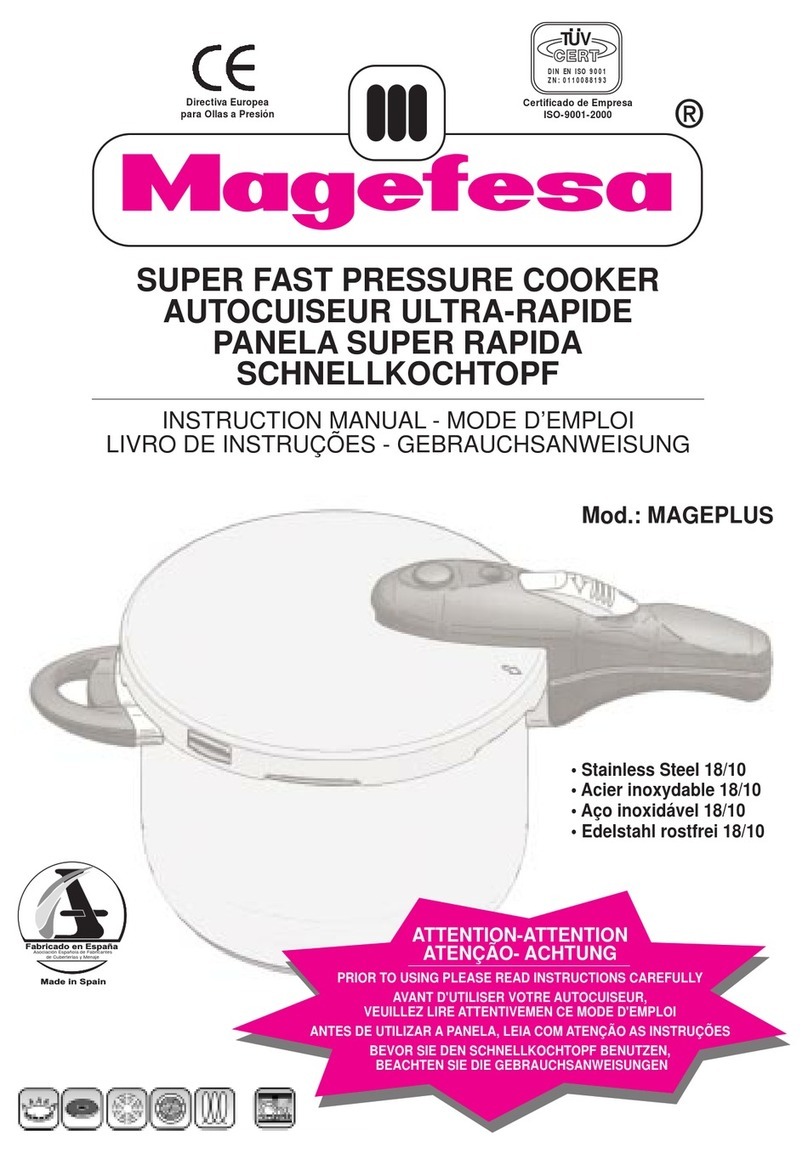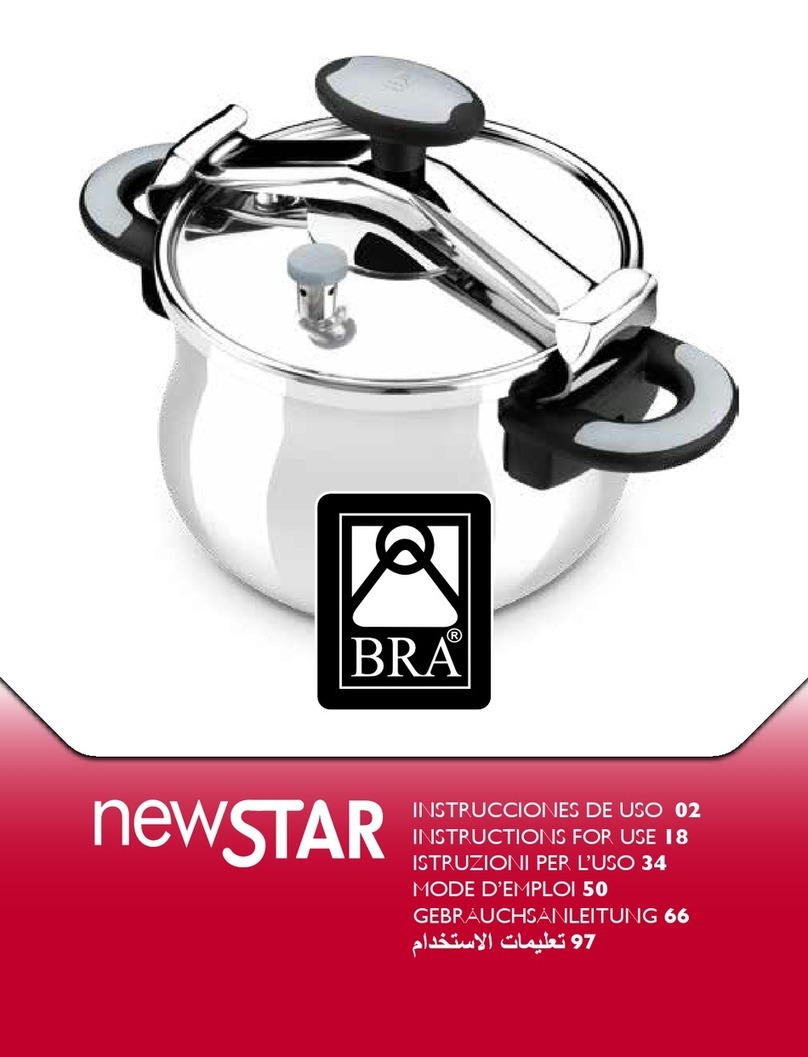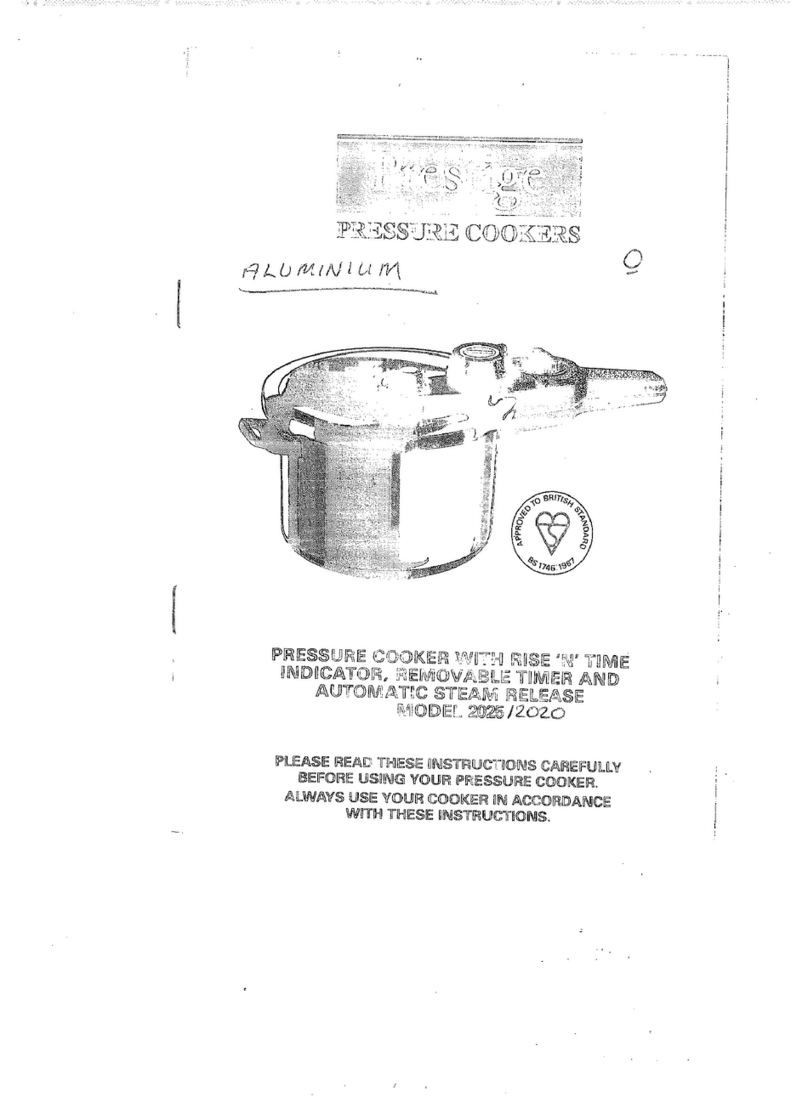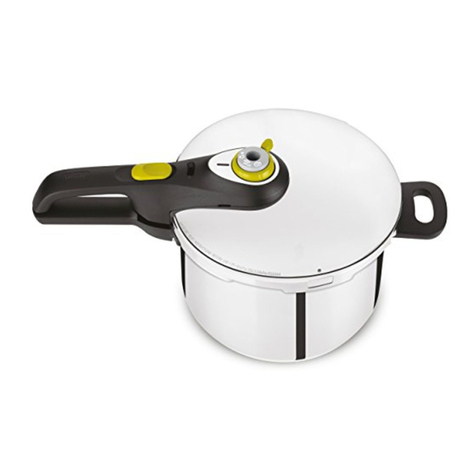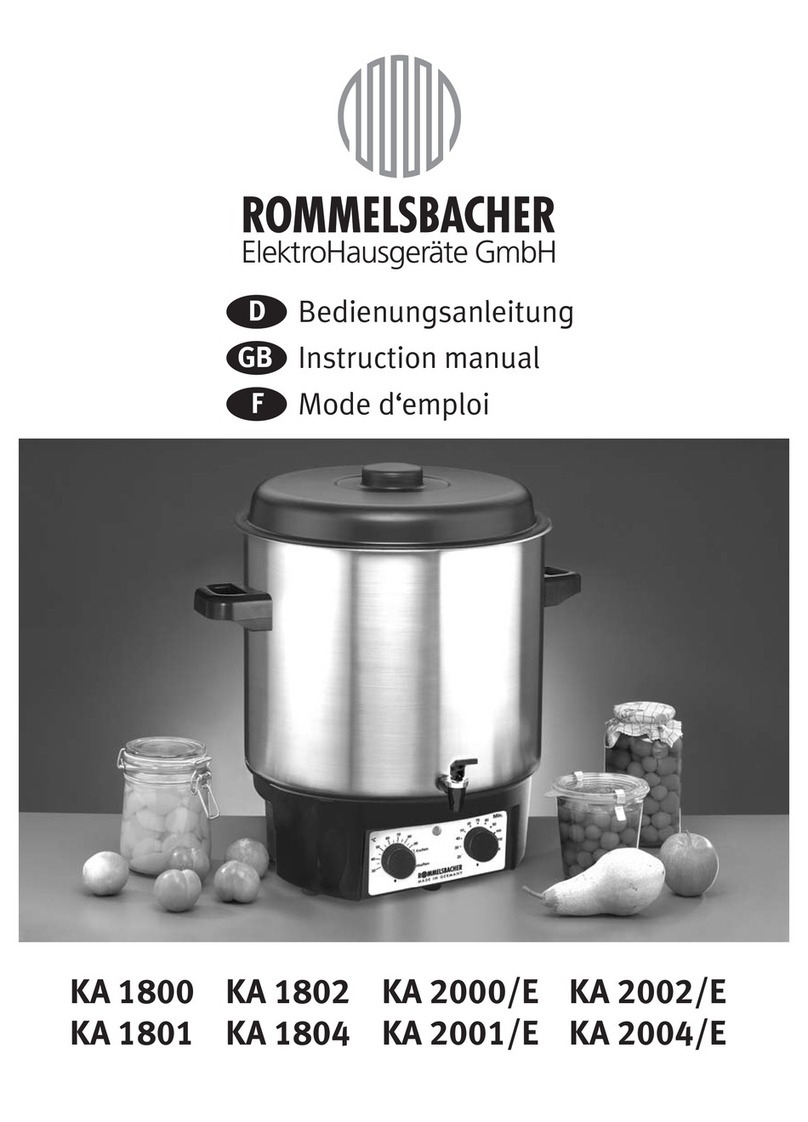
10 minutes. For processing above 2,000 feet altitude, see page
7 for recommended pounds of pressure.
Boiling water canning - process pints 20 minutes and quarts
25 minutes. For processing above 1,000 feet altitude, see page
7 for recommended time.
PEARS
Wash pears. Peel, cut in half, and core. Slice pears, if desired.
Place pears in an ascorbic acid solution (1 teaspoon ascorbic acid
to 1 gallon water) to prevent darkening during preparation. Drain
well. Heat pears through in very light, light, or medium syrup
or water (see page 7). Pack hot pears in clean, hot Mason jars,
leaving 1⁄2 inch head space. Cover with boiling syrup or water,
leaving 1⁄2 inch head space. Adjust jar lids.
Pressure canning - process at 6 pounds pressure, pints and quarts
10 minutes. For processing above 2,000 feet altitude, see page
7 for recommended pounds of pressure.
Boiling water canning - process pints 20 minutes and quarts
25 minutes. For processing above 1,000 feet altitude, see page
7 for recommended time.
PLUMS
Wash rm ripe plums. Remove stems. If plums are to be canned
whole, prick each side with a fork. Freestone varieties may be
cut in halves and pitted. Heat plums to boiling in very light,
light, or medium syrup (see page 7). Boil 2 minutes. Pack hot
plums in clean, hot Mason jars, leaving 1⁄2 inch head space.
Cover with boiling syrup or water, leaving 1⁄2 inch head space.
Adjust jar lids.
Pressure canning - process at 6 pounds pressure, pints and quarts
10 minutes. For processing above 2,000 feet altitude, see page
7 for recommended pounds of pressure.
Boiling water canning - process pints 20 minutes and quarts
25 minutes. For processing above 1,000 feet altitude, see page
7 for recommended time.
RHUBARB
Wash young, tender rhubarb. Remove ends and cut into 1⁄2 inch
pieces. Add 1⁄2 cup sugar to each quart of rhubarb. Let stand
until juice appears. Heat rhubarb slowly to boiling. Pack hot
rhubarb in clean, hot Mason jars, leaving 1⁄2 inch head space.
Adjust jar lids.
Pressure canning - process at 6 pounds pressure, pints and quarts
8 minutes. For processing above 2,000 feet altitude, see page 7
for recommended pounds of pressure.
Boiling water canning - process pints and quarts 15 minutes.
For processing above 1,000 feet altitude, see page 7 for recom-
mended time.
TOMATOES - WHOLE OR HALVED
(packed raw without added liquid)
Wash medium, smooth, rm, ripe tomatoes. Loosen skins by
dipping tomatoes 1 minute in boiling water, then in cold water.
Peel and remove core. Leave whole or halve. Add 2 tablespoons
of bottled lemon juice or 1⁄2 teaspoon of citric acid per quart of
tomatoes. For pints, use 1 tablespoon bottled lemon juice or 1⁄4
teaspoon citric acid. Add 1 teaspoon salt to each quart, 1⁄2 tea-
spoon to each pint, if desired. Fill jars with raw tomatoes, leaving
1⁄2 inch head space. Press tomatoes in the jars until spaces between
them ll with juice. Leave 1⁄2 inch head space. Adjust jar lids.
Pressure canning - process at 6 pounds pressure, pints and quarts
40 minutes. For processing above 2,000 feet altitude, see page
7 for recommended pounds of pressure.
Pressure canning - process at 6 pounds pressure, pints 8 minutes
and quarts 10 minutes. For processing above 2,000 feet altitude,
see page 7 for recommended pounds of pressure.
Boiling water canning - process pints 15 minutes and quarts
20 minutes. For processing above 1,000 feet altitude, see page
7 for recommended time.
APRICOTS
Wash well-ripened, rm apricots. If peeled apricots are desired,
dip 1 minute in boiling water, then in cold water, and peel. Cut
apricots in halves and remove pits. Place apricots in an ascorbic
acid solution (1 teaspoon ascorbic acid to 1 gallon water) to
prevent darkening during preparation. Drain well. Heat apricots
through in a very light, light, or medium syrup or water (see page
7). Pack hot apricots in clean, hot Mason jars, leaving 1⁄2 inch
head space. Cover with boiling syrup or water, leaving 1⁄2 inch
head space. Adjust jar lids.
Pressure canning - process at 6 pounds pressure, pints and quarts
10 minutes. For processing above 2,000 feet altitude, see page
7 for recommended pounds of pressure.
Boiling water canning - process pints 20 minutes and quarts
25 minutes. For processing above 1,000 feet altitude, see page
7 for recommended time.
BERRIES (EXCEPT STRAWBERRIES)
Wash rm berries carefully, removing caps and stems. Heat
berries in boiling water for 30 seconds and drain. Pack hot ber-
ries in clean, hot Mason jars, leaving 1⁄2 inch head space. Cover
with boiling syrup or water, leaving 1⁄2 inch head space. Adjust
jar lids.
Pressure canning - process at 6 pounds pressure, pints and quarts
8 minutes. For processing above 2,000 feet altitude, see page 7
for recommended pounds of pressure.
Boiling water canning - process pints and quarts 15 minutes.
For processing above 1,000 feet altitude, see page 7 for recom-
mended time.
CHERRIES
Wash cherries and remove stems. Remove pits, if desired. If
canning whole cherries, prick each cherry with a clean needle to
prevent splitting. Heat cherries with 1⁄2 cup water to each quart
of cherries. Cover pan and bring to a boil. Pack hot cherries and
cooking liquid in clean, hot Mason jars, leaving 1⁄2 inch head
space. Adjust jar lids.
Pressure canning - process at 6 pounds pressure, pints 8 minutes
and quarts 10 minutes. For processing above 2,000 feet altitude,
see page 7 for recommended pounds of pressure.
Boiling water canning - process pints 15 minutes and quarts
20 minutes. For processing above 1,000 feet altitude, see page
7 for recommended time.
PEACHES
Wash fully-ripened but not soft peaches. Loosen skins by dipping
peaches 1 minute in boiling water, then in cold water. Peel. Cut
peaches in half and remove pits. Slice if desired. Place peaches
in an ascorbic acid solution (1 teaspoon ascorbic acid to 1 gallon
water) to prevent darkening during preparation. Drain well. Heat
peaches through in very light, light, or medium syrup or water
(see page 7). Pack hot peaches in clean, hot Mason jars, leaving
1⁄2 inch head space. Cover with boiling syrup or water, leaving
1⁄2 inch head space. Adjust jar lids.
Pressure canning - process at 6 pounds pressure, pints and quarts
8

